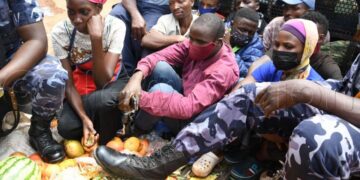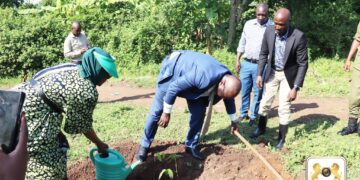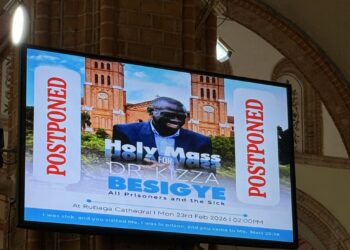By Isaac Tayebwa
NATIONAL
The escalating violence in conflict zones around the world, such as East Jerusalem and Sudan’s Al Jazirah state, has had a devastating impact on children. In the case of Sudan, the UNICEF has reported that more than 150,000 children have been displaced in a matter of days, leaving them cut off from urgent humanitarian aid. These displaced children are among the estimated 5.9 million people who reside in Al Jazirah State, of which approximately half are children.
Since the conflict in Sudan intensified on April 15, nearly 500,000 people have fled violence from other parts of the country and sought refuge in Al Jazirah State, with 90,000 of them seeking safety in the state capital, Wad Madani. The escalation of fighting has pushed vulnerable children out of their homes and into areas that were once considered relatively safe. UNICEF Executive Director Catherine Russell has expressed concern that this new wave of violence places children and families at risk of being trapped between fighting lines or caught in the crossfire.
However, Sudan is not the only country where children are facing numerous challenges. In Uganda, many children continue to live in dire poverty, with some families unable to provide even a single meal a day. This plight forces children onto the streets to beg for survival, taking on responsibilities that should be far from their young shoulders.
Such scenarios raise questions about the kind of leaders, citizens, and parents we have. As journalists, it is our duty to bring attention to these issues and advocate for change. We must prioritize parental training, leadership development, and the reinforcement of ethical values. In the past, Ugandan society recognized that the responsibility of child upbringing was a communal role, where everyone played a part in ensuring their well-being. Recapturing this communal spirit and focusing on equipping children with necessary skills and reminding them of their responsibilities can bring about positive change.
It is also essential for leaders to address the increasing number of young children on the streets. This is a collective issue that requires the involvement of both the community and our leaders. Complaining behind closed doors is not enough; we must work together to find practical solutions.
Before any more tragedies like those witnessed in Gaza and Sudan occur, it is crucial that we invest in preparing our children to love their country and nurture a strong sense of unity. Hate speech is detrimental, as it directly shapes the next generation. We must strive to create a society where all children have the opportunity to thrive, irrespective of their circumstances. Only then can we truly claim to be building a brighter future for our children.








































